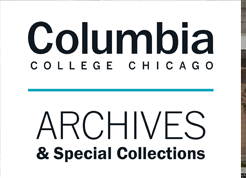

Files
Download Audio (65.9 MB)
Loading...
Description
DJ Celeste Alexander grew up on the South Side of Chicago in Hyde Park. Attending Kenwood high school, she knew that her neighborhood’s cultural vitality was in part connected to the fact that it was a home for interracial couples in the 1950s and 1960s, as well as a campus town, set apart from the rest of the segregated city. A dark-skinned girl with short hair who was a self-professed late-bloomer and tomboy, Alexander sided with the harder-edged kids in her neighborhood, rejecting disco and embracing stepper culture. She remembers Kenwood’s school dances, where folks like Jesse Saunders played disco and top 40, but she wouldn’t begin to embrace the South Side’s genre-defiant dance music culture until she attended Loop Junior College (now Harold Washington Junior College) with Steve Hurley in the early ‘80s. Alexander had a big crush on Hurley; he taught her about hotmixing, but also that it wasn’t really for women. That challenge was enough to ignite a fire under her. Alexander would be damned if she was going to be told she couldn’t do something because she was a woman. Steve DuPlain and David Martin let her watch them spin, but it was Keith Fobbs who let her play on his home DJ setup. Keith was already Andre Hatchett’s protégé, and introduced him to Alexander. It wasn’t long before Hatchett was bringing Alexander to his gigs to watch him work. Her first gig spinning a party for David Risqué at Calvin Hollis’ International Game Room on 47th Street off of King Drive. Risqué/Gucci ultimately ended up featuring DJ Celeste at Sauer’s, but that night they were featuring Hobbs, Hatchett, and Steve Hurley. Alexander played in baseball caps and loose sweat clothes to conceal her gender while she was learning the craft, but eventually she became a fixture on the city’s teen house scene; a silent financial partner in The Power Plant; and joined an all-female hotmixing crew put together by Park Avenue Productions called the Fantastic Four (the group also included Rick Lenoire’s sister Kenya, Chrissy “The First Lady” Henderson, and a girl named Bird, plus sometimes fifth member Angela Hurley). In 1984 Alexander got pregnant, but that didn’t stop her from going out. Eventually Frankie Knuckles put his foot down and made sure that she wasn’t allowed into The Power Plant. In the years after her son’s birth, Alexander tapered her involvement in Chicago’s dance music scene, but in 2006 she reignited her career. Today she plays all over the city, reps Nu Bang Clan, and spins an internet radio show through Cyberjams.
Publication Date
2014
Publisher
Columbia College Chicago
City
Chicago
Keywords
House Music, Chicago, Illinois, disc jockey, Cyberjams, Fantastic Four, The Power Plant, hotmixing
Creative Commons License

This work is licensed under a Creative Commons Attribution-NonCommercial-No Derivative Works 4.0 International License.
Disciplines
African American Studies | Gender and Sexuality | History | Latina/o Studies | Music | Regional Sociology
Recommended Citation
Salkind, Micah, "Interview with Celeste Alexander" (2014). Chicago House Music Oral History Project. 7.
https://digitalcommons.colum.edu/house/7



Comments
This interview is part of the Chicago House Music Oral History Project held at Columbia College Chicago and was captured for Do You Remember House? Chicago's Queer of Color Undergrounds authored by Micah Salkind and published in 2019. The work integrates histories of music, production, DJing, dance, fashion, and slang and addresses movements that led to the development of Chicago's house music.